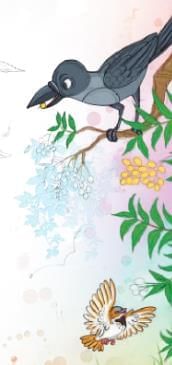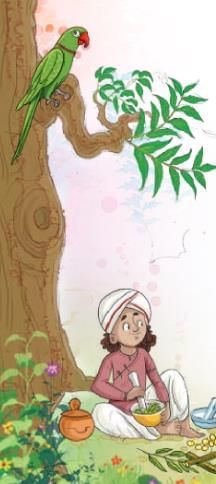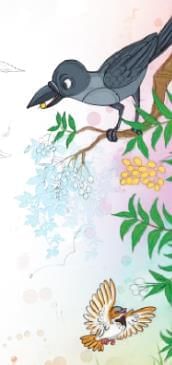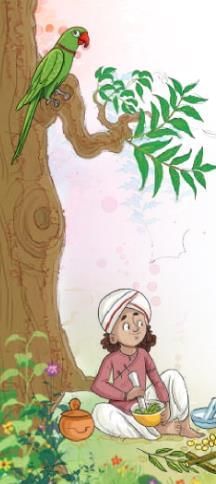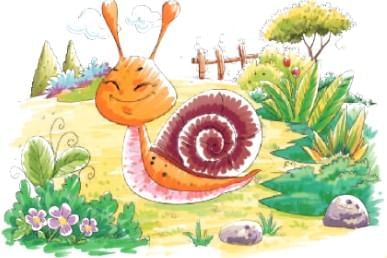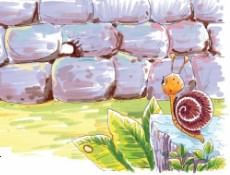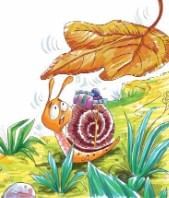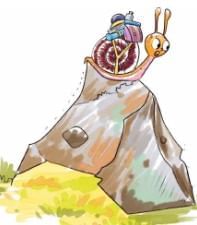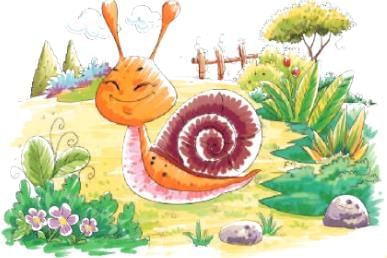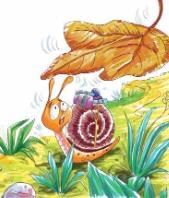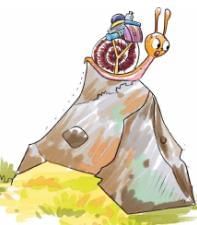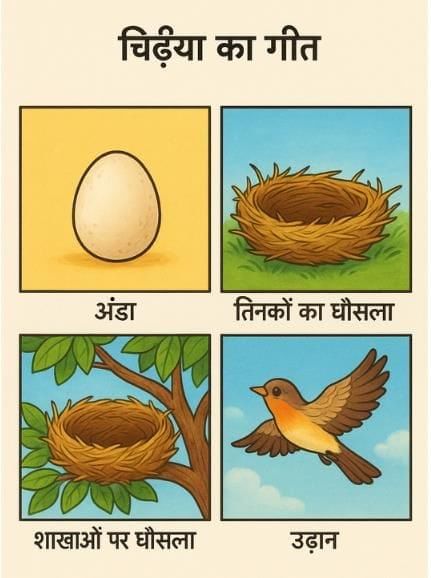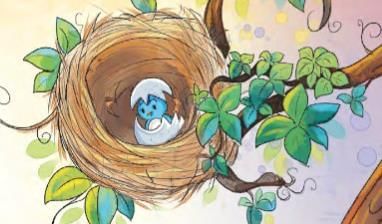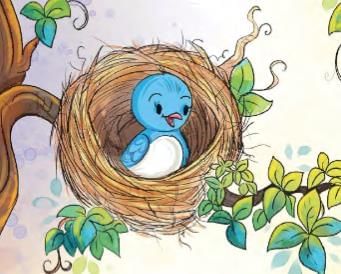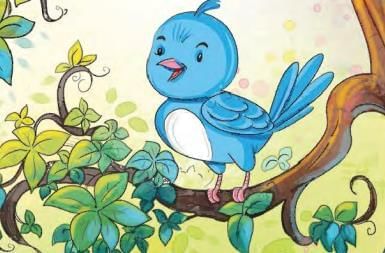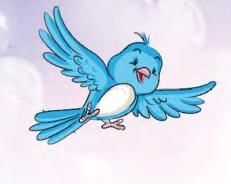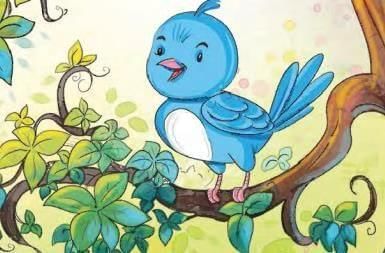i) बहुविकल्पीय प्रश्न
(प्रत्येक प्रश्न के लिए सही विकल्प चुनिए।)
- कवि ने मुख्य रूप से किस खाद्य समूह को सबसे पहले खाने की सलाह दी है?
a) चावल, दाल और सब्जी
b) आलू-टमाटर
c) भिंडी, परवल
d) फल-फूलोंसही उत्तर: a) चावल, दाल और सब्जी
व्याख्या: कविता की प्रथम पंक्तियों में ही कहा गया है: “चावल, दाल और सब्जी खाओ…”।
- कविता में पानी के उपयोग को कैसे बताया गया है?
a) “पानी पीने से बचे”
b) “पानी का व्यवहार कम “
c) “पानी का महत्व कम है”
d) “पानी महिमा अपरंपार”सही उत्तर: d) “पानी महिमा अपरंपार”
व्याख्या: कविता में कहा गया: “खूब करो पानी का व्यवहार, इसकी महिमा अपरंपार।” - निम्न में से कौन-सा भोजन कवि ने रोग-प्रतिरोधक बताया है?
a) भुना-सत्तू
b) मिठाई
c) ठंडाई
d) जंक फूडसही उत्तर: a) भुना-सत्तू
व्याख्या: कविता में लिखा है: “भुना-सत्तू नियमित खाएँ, वैद्य-हकीम घर न आएँ।”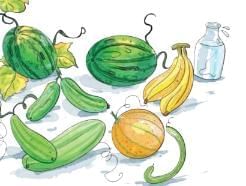
ii) रिक्त स्थान भरें
(नीचे रिक्त स्थानों में सही शब्द लिखिए।)
- केवल आलू-टमाटर मत खाना, ________, परवल, नैनुआ भी खाना।
- उत्तर: भिंडी
- व्याख्या: कविता में आलू-टमाटर के विपरीत भिंडी, परवल, नैनुआ खाने की सलाह दी गई है।
- दूध-दही तुम ________ खाओ, फल-फूलों के बाग लगाओ।
- उत्तर: छककर
- व्याख्या: कहा गया है: “दूध-दही तुम छककर खाओ”।

- ________, तरबूज, ककड़ी, खीरा, गर्मी की हरते हैं पीड़ा।
- उत्तर: खरबूज
- व्याख्या: कविता में इन फलों का उल्लेख गर्मी में राहत के लिए किया गया है।
- भोजन में हो खूब ________, इसका है अपना अंदाज।
- उत्तर: सलाद
- व्याख्या: सलाद के महत्व का वर्णन है।
- ताजा खाना हरदम खाओ, नहीं ________ कभी बनाओ।
- उत्तर: बहाना
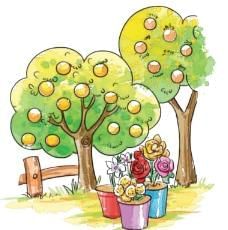
iii) अति-लघु उत्तर प्रश्न
(प्रश्नों के उत्तर एक पंक्ति में दीजिए।)
- कवि ने किन फलों के बाग लगाने को कहा?
- उत्तर: आम, अमरूद, पपीता।
- मौसम की गर्मी से राहत के लिए कवि ने क्या खाने का सुझाव दिया?
- उत्तर: खरबूजा, तरबूज, ककड़ी, खीरा।
- भोजन के साथ कवि ने किस प्रकार का व्यवहार बढ़ाने को कहा?
- उत्तर: पानी का व्यवहार।
- कविता का अंतिम संदेश क्या है?
- उत्तर: अच्छा आहार लेने से बीमारियाँ नहीं होतीं।

iv) लघु उत्तर प्रश्न
(प्रश्नों के उत्तर 2–3 पंक्ति में दीजिए।)
- कविता में “फल-फूलों के बाग लगाओ” का क्या अर्थ है?
- उत्तर: विभिन्न फलों—आम, अमरूद, पपीता आदि—का सेवन करके अपने आहार को संतुलित और पोषक बनाएँ।
- “भुना-सत्तू नियमित खाएँ, वैद्य-हकीम घर न आएँ” पंक्ति से क्या सीख मिलती है?
- उत्तर: नियमित पौष्टिक आहार—जैसे भुना सत्तू—लेने से रोग-प्रतिरोधक क्षमता बढ़ती है और डॉक्टर के पास जाने की आवश्यकता कम होती है।
- गर्मी के दिनों में कवि ने किन फलों का सेवन सुझाया और क्यों?
- उत्तर: खरबूजा, तरबूज, ककड़ी, खीरा क्योंकि इन सब्जियों व फलों में पानी अधिक होता है और ये शरीर को ठंडक प्रदान करते हैं।
- “ताजा खाना हरदम खाओ, नहीं बहाना कभी बनाओ” का क्या संदेश है?
- उत्तर: ताज़ा बना भोजन स्वास्थ्य के लिए सर्वोत्तम होता है।
- कविता में पानी के महत्व को कैसे दर्शाया गया है?
- उत्तर: कविता कहती है कि अच्छी सेहत के लिए पानी का भरपूर उपयोग करें क्योंकि इसकी महिमा अपरंपार है।
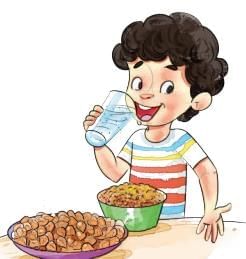
v) मिलान कीजिए
(Column A को Column B से मिलाएँ।)
| Column A | Column B |
|---|---|
| 1. केवल आलू-टमाटर न खाने की सलाह | a. सलाद का अपना अंदाज |
| 2. ताजा खाना खाओ | b. भिंडी, परवल, नैनुआ भी खाना |
| 3. भोजन में सलाद शामिल करने का महत्व | c. बहाने न बनाने की सीख |
उत्तर-मिलान:
1 – b, 2 – c, 3 – a
संक्षिप्त व्याख्या:
- (1‑b) आलू-टमाटर के बजाय पौष्टिक सब्जियाँ खाने की सलाह।
- (2‑c) ताजा भोजन से स्वास्थ्य बेहतर रहता है, बहाने न बनाने की सीख।
- (3‑a) सलाद का सेवन स्वास्थ्य के लिए जरूरी है।
